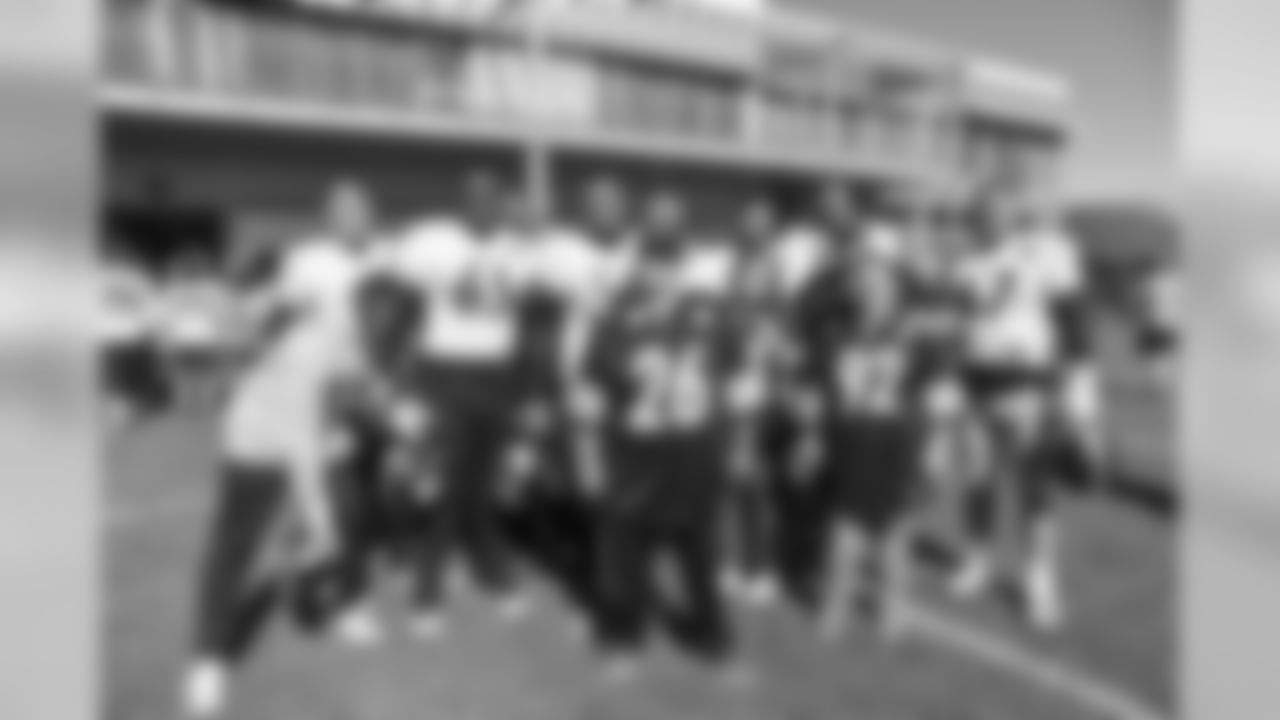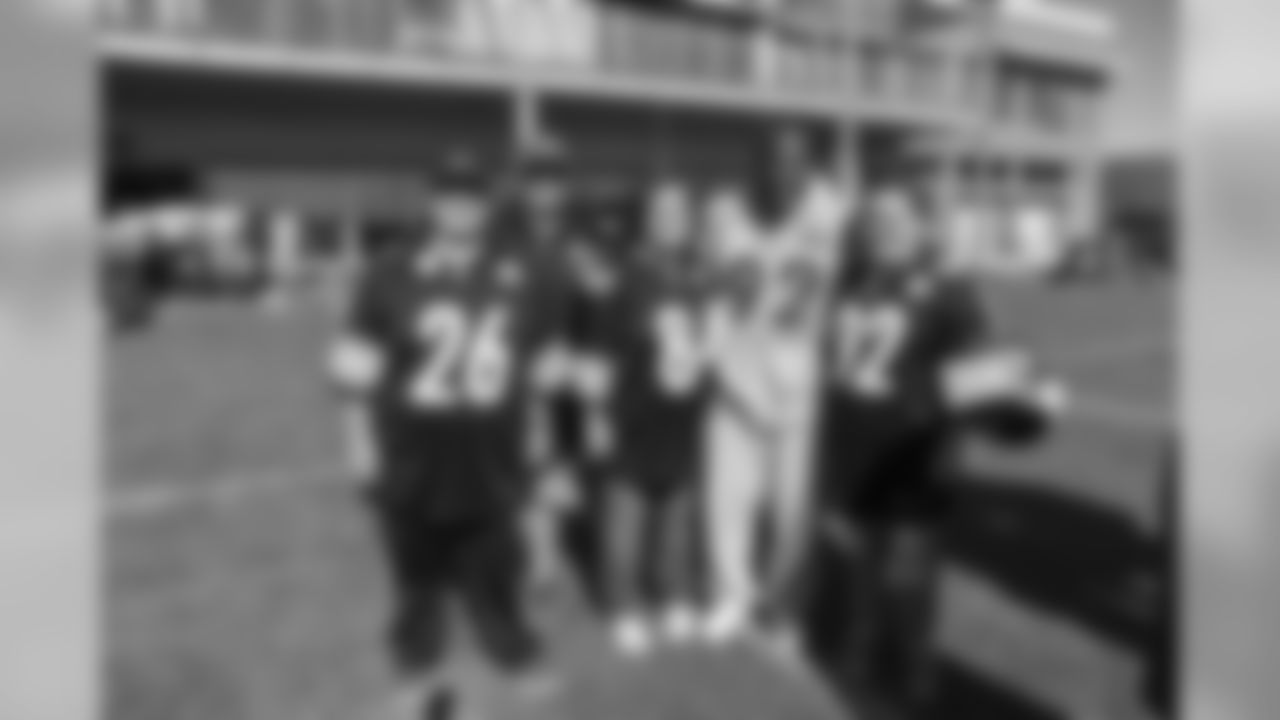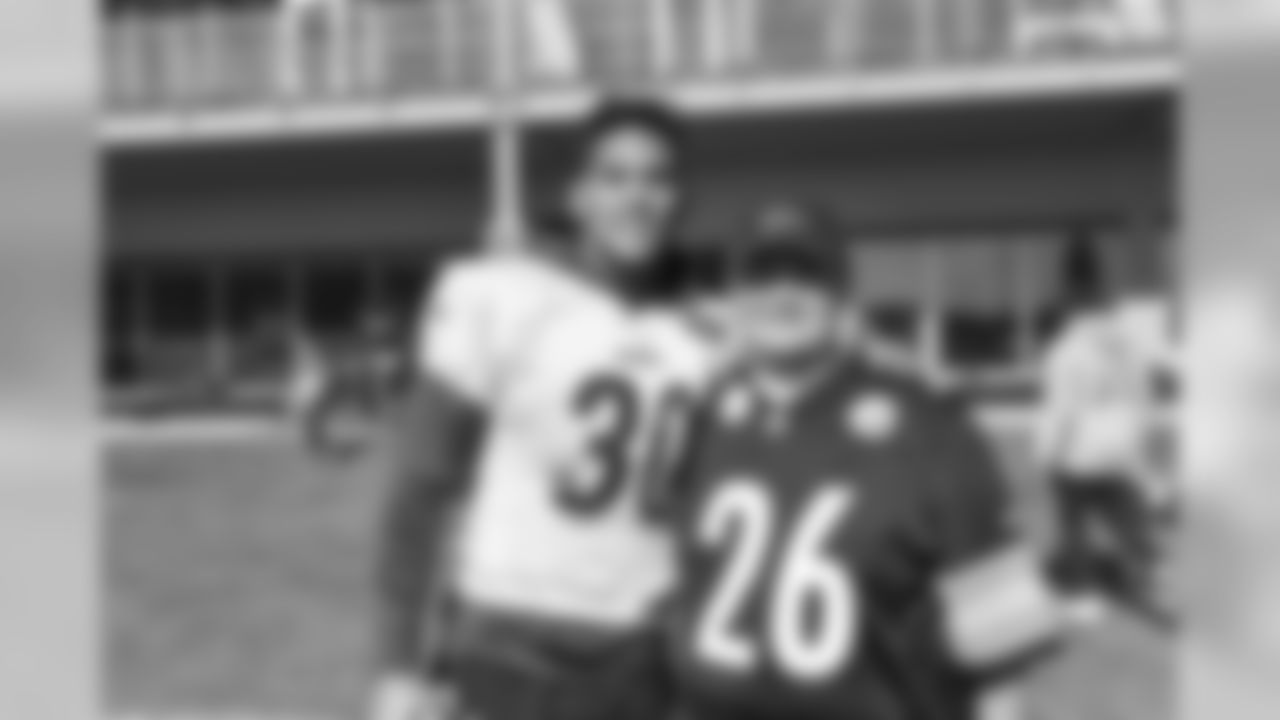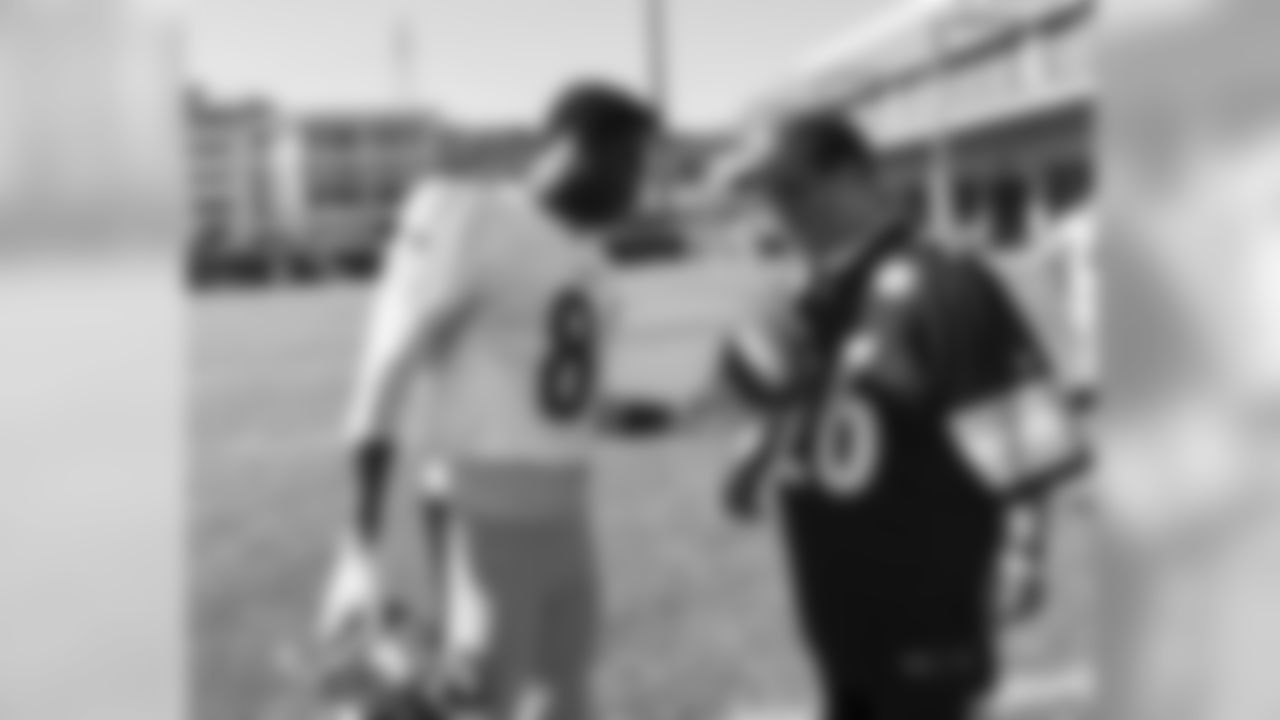**
Q. I'd like to talk a little bit about how the game plan process evolves during a typical regular season week. Let's say the game is on Sunday. Do you start preparing for the next opponent on Monday, or is Monday a day to review what happened in the game the previous day?**
A. It probably starts in an individual way in the latter part of the previous week. I know as a position coach that was something I did as I brought to a close my preparation for the present opponent, I might sneak a peek or organize my thoughts and set a few things aside during a couple of hours on a Friday or a Saturday in preparation for that Monday. Officially, collectively, the work starts in terms of game prep on Monday morning.
Q. What work is that?
A. First of all, you just let the tape run. Monday is an interesting day because you're grading your previous performance and analyzing that, you're making an assessment of that, you're doing the self-scout that's associated with coming out of a game, but you quickly transition in terms of familiarizing yourself with the next opponent. And that's usually described as "letting the tape run," and I say that because the volume of the tape that you watch on a Monday is critical. You want to get a wide understanding of who they are and what they are, and the only way you gain that is by watching a lot of tape. That's something that I do, and it's something I encourage all of our coaches and players to do. Don't get stuck on a play, or on a series of plays, or on a particular game. You have to let that tape run. You have to get a wide volume of viewing, and then let that volume talk to you in terms of their personality, who their significant players are, some high-frequency things they do, etc., etc., etc.
Q. So that's done individually?
A. That's done individually.
Q. What's first on the agenda for Tuesday?
A. Tuesday is when the collective work starts coming together. I meet with the offensive staff on Tuesday morning. We outline our base things, things we do week in and week out vs. what we perceive to be their base things, things that the opponent does week in and week out. I'll have a similar meeting with the defensive staff later on, after my press responsibilities.
Q. Do the coordinators meet with their position coaches and watch video of the upcoming opponent together, or is that done individually?
A. In an effort to work most efficiently, people watch it individually, because the things that are pertinent to Carnell Lake as the secondary coach might not be pertinent to John Mitchell as the defensive line coach. We cover more ground when we work individually in our particular areas and then we come together. There are certain things, certain elements of the game where we sit all of the bodies in the room and we let the tape run, and we discuss. But that individual tape study is an important element of game planning. It allows you to cover a lot of ground and allows people to bring their individual expertise to a lot of conversations.
Q. What's typically discussed when the coordinator meets with his position coaches?
A. How do our base things mesh against their base things. How do our people, our personnel, mesh against their people. How do our central guys to what we do, match up against their central guys to what they do. That's always the discussion at the early portions of the week. High-frequency things, personality things, significant players, high-volume things that are going to play out over the course of a 65-to-75 snap game.
**
The Steelers grant the wish of a young fan from Alum Bank, PA.


































Q. When does it get more detailed?**
A. As you get into the latter part of Tuesday, then Wednesday, Thursday. It goes at the early portions of the week from big-volume personality things, and then the more you push through the week it gets more detailed, more specific. Then as you get more toward Thursday and Friday, you start talking about situational football and specific things – how to win moments, how to capture moments, how to be big in significant moments. And those are things that occur one or two times a game.
Q. Then the notion of the players arriving on a Wednesday morning and being presented with a complete game plan is not accurate?
A. No, they're presented with a base plan, but that plan is in continual evolution. On a week like this one where we're playing at night, we'll be putting the final touches on this thing into the afternoon as we go today.
Q. How detailed is a game plan? For instance on offense, is it something like we can run the ball over the defense's right side, or does it identify specific plays to run the ball over the defense's right side?
A. It is beyond even that. We're going to run the ball over the right side of their defense when a particular guy is in the game and he's in a specific gap. That's just NFL football. And that's not anything unique that goes on with us. There are different layers to this thing, and as you progress through the different levels of play, these guys don't have to go to class (like they do in college). They clock in here all week. In terms of game prep, it is that specific.
Q. When you talk about how detailed a game plan is – "We're going to run the ball over the right side of their defense when that guy's in the game, and he's in a specific gap" – but might you not know that until the play clock is winding down before a particular snap in the game?
A. Going into our eighth football game, we have a volume of video and analytics that put percentages on situations and circumstances. That's just become part of today's football. You could almost book some of these circumstances in today's game. If we have a first-and-10 and the ball is on our own 25-yard line, there's an 85 percent probability that this is the front we're going to see and these are the people they're going to have in the game if we have these people in the formation on the field. That's just football today. There's nothing earth-shattering or groundbreaking about it.
Q. Was the fake punt against the Bengals one of those situations where the players on the field were on their details and reacted accordingly?
A. It was a classic example. It was one of those if-plays. If we're presented a certain look, and if we recognize that look, then these are the A, B, and C things that need to happen. You don't get that done without great continuity. If you really look at the components of that play, the significant components of that play, there's Robert Golden as the personal protector and Darrius Heyward-Bey as the gunner. Those are not young guys. Those are guys who have been holding down those jobs for us for a number of years and have been in this league even longer. I think that continuity, that veteran experience and expertise allows plays like that to happen. There is a classic example of the value of continuity and experienced play in the special teams element of the game.
Q. Are there places on the field – say deep in your own territory – where you don't want a fake punt attempted, regardless of what the opponent is showing?
A. Absolutely. It's only an if-play if I designate it as an if-play. There's not a universal, 100 percent if-play. Absolutely not. It's when I say alert-alert, for lack of a better term.
**
Q. How would you assess the development of your defense to this point in the season?**
A. I think they're generally moving in the right direction. A big element of it is continued continuity as we move forward. We've had guys, a splattering of guys, miss time here and there. T.J. Watt missed a little time. Stephon Tuitt has missed some time. We've had guys miss quite a bit of practice time. That affects growth and development. We've been clean in that area in recent weeks, and I think that's as big a component of their collective maturation as anything. People ask me about it informally, and I'm very clear. The couple of collective games we've been able to put together, we've had strong practice participation. We've had young guys practicing and getting in-helmet perspective on play. That aids them in performance.
Q. Do you find you have to temper the hype, maybe be a little bit of the bad cop when a unit, like your defense, is being praised as it has been lately?
A. They know the truth. We talk openly enough about how we're doing that they know how we're doing, and you can't fool them in that regard. There have been times where the outside world thinks we're playing poorly and we're not, so they don't beat themselves up. So it's reasonable to expect those guys to understand that when the outside world thinks they're playing great, and they may know that they're not, that they keep their feet on the ground. We just have to continually go through this process, and not only on defense but in all three phases as a football team: prepare, play, evaluate, grow, repeat process. That's what it's about for us, and it's been a been the process for us in recent weeks in terms of prep, play, and evaluation of that play, and then making the necessary growth adjustments.
Q. Whenever any of your coaches is asked about monitoring Le'Veon Bell's carries, they always pass the buck to you and say it's your call. What are the things you would consider in deciding if a player like Le'Veon is being over-used?
A. It's about the individual player. I've learned through experience at this level that these are unique guys. There are no cookie-cutter answers to any of these things in terms of how to deal with people, particularly at the running back position. Le'Veon is a unique guy, a unique athlete. He's a unique personality, and so how I handle him might be different than how I'd handle someone else. It's definitely different than how I handled Rashard Mendenhall or some of the other guys I've coached. I'm comfortable with our usage of him because of the relationship I have with him, and the knowledge I have of him as an athlete and a football player. He's highly conditioned. He's a tremendous competitor, he's uniquely competitive even in an industry that's laced with people who are ultra-competitive. He's uniquely durable. There are a lot of things that weigh into the decision-making that make me comfortable with his usage. It might be different if it was someone else.
Q. In the past, you've used the phrase, "protect someone from himself." Do you have to do that with him?
A. All the time, but that's a responsibility that I welcome. When we put James Conner in at the end of the game against Cincinnati, Le'Veon was chirping as he came off the field. That's just Le'Veon. He's a tremendous, tremendous competitor. The awesome thing people should know about him is that he's the same way at practice. That just doesn't come out of him in the stadium. It could be a Thursday practice, and if we're competing, he's in the middle of it. He loves that element of the game.
Q. Today's game is on the road against an NFC opponent with a .500 record, and it comes after a couple of big wins against AFC teams, one over the previously undefeated Chiefs and the other over the division rival Bengals. What will your team's performance in this game tell you about its development?
A. Consistency is what we look for. Being able to put together consistent winning performances and doing it increasingly as we get into this journey. As we get to the midpoint of this season, it's reasonable to expect us – if we're who we desire to be, which is a team on the rise at the appropriate time – that that starts to happen. We've got a couple of collective winning performances and we need to build and add onto that. So that's our sole focus.














